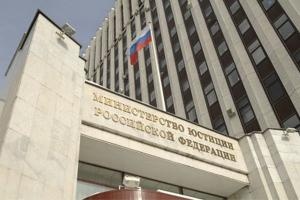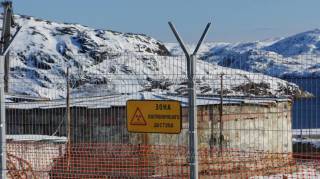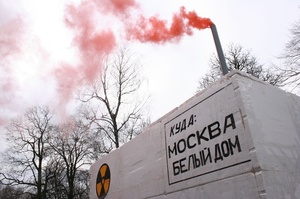
New Managing Director for Bellona Norway
The Board of the Bellona Foundation has appointed former Minister of Climate and the Environment Sveinung Rotevatn as Managing Director of Bellona No...
News

Publish date: March 20, 2015
News
Bellona Murmansk, the Bellona Foundation’ office in Northwest Russia, was yesterday designated as a “foreign agent” by Russia’s Ministry of Justice, making it the third environmental group to be so named since June.
Russia’s harsh law on NGOs, which took effect in November 2012, stipulates that non-profits receiving any foreign funding and that are engaged in vaguely defined “political activity must register themselves with the Justice Ministry as foreign agents – a term closely equated with espionage.
In June, president Vladimir Putin gave the Justice Ministry the authority to designate foreign agents on its own.

Bellona Murmansk found it had made the Justice Ministry’s list when its website (in Russian) issued a brief saying in part that the group had been designated as a foreign agent “in the course of unscheduled document inspections.” It offered no explanation as to what the inspections revealed to establish the organization had run afoul of the law.
But Bellona Murmansk’s Anna Kireeva, who’s been in touch with Russian authorities, offered an insight into the new move against the organization.
“The Ministry of Justice thinks we are political because we’ve written that current [Russian] legislation makes it more profitable for industry to pay fines for pollution than putting in place environmental measures” that would prevent that pollution, she said.
A foreign agent designation can carry with it thousands of dollars in fines for the organization as a whole and yet more fines for the group’s director, Andrey Zolotkov. Failure to pay crippling fines or to display the foreign agent moniker in publications, reports and web contributions could result in forced shutdown.
Nils Bøhmer, Bellona’s executive director, strongly disagrees with the Justice Ministry’s formulation.
“We obviously don’t agree that our offices in Murmansk should be designated ‘foreign agents,’” he said.
“Together with our Russian colleagues, we are now examining alternative ways to continue our environmental battle in Northwest Russia,” Bøhmer added. “We are considering other organizational forms” that Bellona n could take.
Essentially reorganizing in a different legal form is one route many other Russian NGOs that have been labeled as foreign agents have taken to duck the foreign agent designation and continue their work.
Others have chosen to fight lengthy and expensive court battles to have their names scrubbed from the list. Neither approach, however, yields predictable results.
Soviet legacy nuclear cleanup now in question
The Justice Ministry’s work casts a cloud of uncertainty over the future of Bellona Murmansk’s work.
At stake is nothing less than continued nuclear cleanup in Northwest Russia at a time when no other countries aside from Norway plan to help fund safe disposal of Soviet Legacy military nuclear waste and spent nuclear fuel.

Bellona Murmansk’s efforts and its cooperation with Russian state nuclear corporation Rosatom have yielded particularly effective results in terms of dealing with Andreyeva Bay.
The former submarine base is Northwest Russia’s most dangerous nuclear legacy site, and holds 23,000 spent nuclear fuel rods from submarines and 32 tons of radioactive waste.
But this waste still needs to be transported from the site before the area can completely be remediated. Removing the waste is expected to cost an additional $1.5 billion.
Slapping a foreign agent label on Bellona Murmansk isn’t going to help draw any funding for removing that hazardous waste to final disposal any faster, noted Bøhmer.
“This may cause a serious delay in clean up of radioactive waste in Northwest Russia,” he said. “Bellona Murmansk has be critical in nuclear cleanup efforts in Northwest Russia on an international scale – now we fear international cleanup efforts will deteriorate dramatically as a result of this.”
Bellona Murmansk has been crucial in efforts to get nuclear cleanup in northwestern Russia on the international agenda. We now fear that the international cleanup efforts now deteriorate dramatically as a result of this, said Bøhmer.
The rising count of foreign agents
A total of 48 NGOs have been called foreign agents by Russia’s Justice Ministry.
Environmental groups that made it onto the list prior to Bellona Murmansk were told what they had done to wind up on the list.
In July, Russia’s Ecodefense, a respected anti-nuclear group, found itself listed as a foreign agent for protesting the construction of a nuclear power plant in the Russian enclave of Kaliningrad.

The Justice Ministry told the group’s co-chair, Vladimir Slivyak, that Ecodefense had been included on the list because protesting a nuclear plant is tantamount to protesting the state. Ecodefense is fighting the designation in court.
In February, the Siberian Environmental Center was named a foreign agent. An inspection of the office turned up messages of support on its website for 30 jailed Greenpeace activists, who were later amnestied by Putin himself.
Ilya Smelyansky, the group’s leader, told Bellona it would continue its work by reorganizing as a new legal entity.
Taking it to a Russian court ‘pointless’
Although Bellona has previously fought and won in the Russian legal system, there will be no legal battle this time.
Bellona is a veteran of the Russian legal system, and fought for from 1996 to 2000 to clear Alexander Nikitin, now chairman of St Petersburg’s Environmental Rights Center Bellona, of treason charges. The case marked the first in history that a treason charge leveled by Russia’s security services was struck down by the Russian Supreme Court.
But the political weather has darkened since those days and Bøhmer said the Bellona wouldn’t be slugging it out in court this time.
“Unfortunately, a battle in the Russian court system today is a waste of time and money,” he said.
Kireeva agreed. “In today’s situation in Russia, taking this case up in court would be pointless.”
Bøhmer is proposing a different tack.
“Various NGOs in Russia have tried different strategies [that don’t involve court] to challenge the agent status, and we will avail ourselves of that energy to examine how we can continue out work in northwest Russia most effectively,” he said.

The Board of the Bellona Foundation has appointed former Minister of Climate and the Environment Sveinung Rotevatn as Managing Director of Bellona No...

Økokrim, Norway’s authority for investigating and prosecuting economic and environmental crime, has imposed a record fine on Equinor following a comp...

Our op-ed originally appeared in The Moscow Times. For more than three decades, Russia has been burdened with the remains of the Soviet ...

The United Nation’s COP30 global climate negotiations in Belém, Brazil ended this weekend with a watered-down resolution that failed to halt deforest...